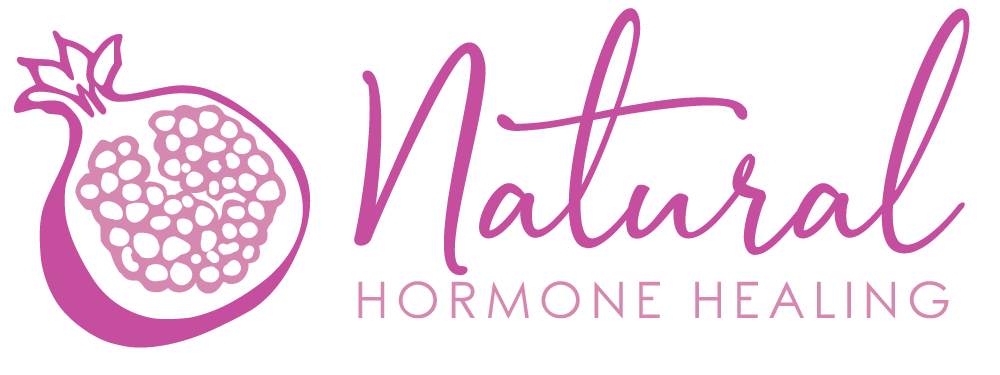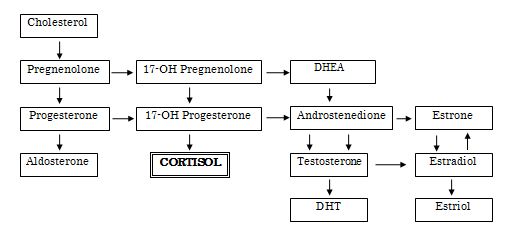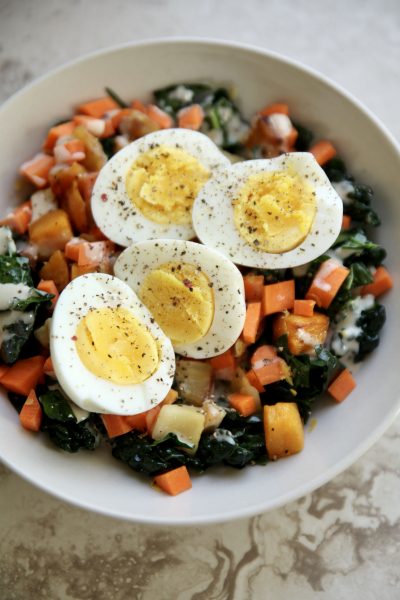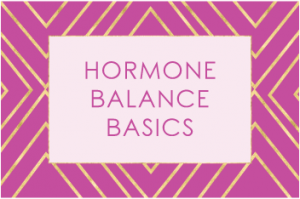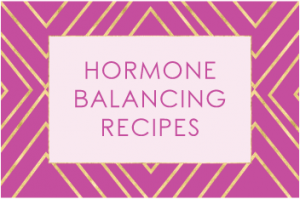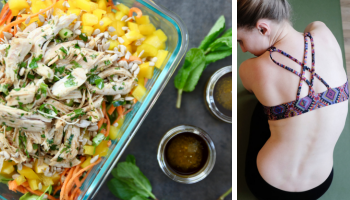Eating this lunch bowl during your luteal phase can help you reduce PMS symptoms and support conception.
The Luteal Phase lasts 10-14 days and starts right after ovulation. The follicle that the egg burst from grows on the surface of the ovary and starts to produce progesterone. The progesterone signals the body to keep the uterine lining intact. Estrogen and progesterone slowly decrease which signal the body to release the uterine lining.
It’s important to note that progesterone is the dominant hormone during this phase of your cycle. If estrogen gets too high or if progesterone is too low then it can cause PMS, breast tenderness, heavy period or other menstrual issues. PMS may be normal but it’s not natural. It’s actually a sign of estrogen dominance. If progesterone isn’t high enough it can decrease serotonin which can cause anxiety, depression and mood swings during your luteal phase. Eating specific foods during your luteal phase can help support your estrogen and progesterone balance.
Here are the benefits of some of the ingredients in this recipe:
Roasted Root Vegetables During the luteal phase, your body become more insulin sensitivity so it’s important not to spike your blood sugar with sugar and high carbohydrates. However, you do need some carbohydrates to support the seratonin in your brain. Roasted root vegetables such as carrots, squashes and parsnips are great options to have in your luteal phase because they provide you with a complex carbohydrate that will keep you satisfied but won’t spike your blood sugar.
Leafy Greens Eating your greens everyday is essential during your luteal phase because they contain calcium, magnesium, b vitamins, iron and fibre. All of these nutrients are important to support you in creating and processing proper hormone levels to reduce PMS and support conception.
Soft Boiled Eggs One little known fact about hormones is that the building block for progesterone, estrogen and testosterone is cholesterol. Having a source of cholesterol, such as eggs, in your diet can help support optimal hormone levels. Eggs also give you B vitamins and choline which are important in processing and building your hormones.
Roasted Roots & Greens Bowl with Soft Boiled Eggs
Serves 4
Salad:
8 large or extra large eggs, soft boiled*
2 Tbs. of olive oil
1/2 tsp. of sea salt
1 Tbs. of fresh lemon juice
Zest from 1/2 of a lemon
8 handfuls of dino kale, stems removed and chopped
1 cup of diced carrots
1 cup of roasted butternut squash**
1 cup of roasted parsnips**
1 Tbs. of coconut oil
1 Tbs. of ghee
Sprinkle of black pepper
Tahini Sauce:
1/4 cup of tahini
1/2 tsp. of sea salt
1 Tbs. of fresh lemon juice
2 Tbs. of purified water
*Soft boil eggs by placing eggs in a medium pot filled with cold water and the lid on. Bring to a boil, then remove the lid and continue boiled for 5 minutes (4 1/2 for smaller eggs). Remove from heat and allow to cool in the refrigerator before peeling.
In a large mixing bowl, add olive oil, sea salt, Leon juice and lemon zest and whisk to combine. Add chopped kale and mix until the kale is coated by the olive oil mixture.
Divide kale between 4 bowls.
*To roast butternut and parsnips, arrange on a baking tray lined with parchment paper and toss with coconut oil and ghee. Roast in the oven at 350 degrees for 40 minutes, tossing after 20 minutes.
Arrange butternut squash and parsnips over each bowl of kale, followed by chopped carrots.
Pour tahini sauce over each salad.
Place 2 halved soft boiled eggs on top of each salad and sprinkle with black pepper.
Enjoy!
Pin This Recipe
Photos and Recipe by Sarah Steffens of Savor & Fancy
 Sarah Steffens is a Personal Chef based in Los Angeles. She specializes in Paleo, Autoimmune, and Whole30 cooking and believes food is the starting ground for practicing kindness to one’s body, mind and spirit. In addition to cooking for private clients, she also creates recipes and photography for Whole30. She shares recipes and kitchen tips at Savor & Fancy.
Sarah Steffens is a Personal Chef based in Los Angeles. She specializes in Paleo, Autoimmune, and Whole30 cooking and believes food is the starting ground for practicing kindness to one’s body, mind and spirit. In addition to cooking for private clients, she also creates recipes and photography for Whole30. She shares recipes and kitchen tips at Savor & Fancy.
